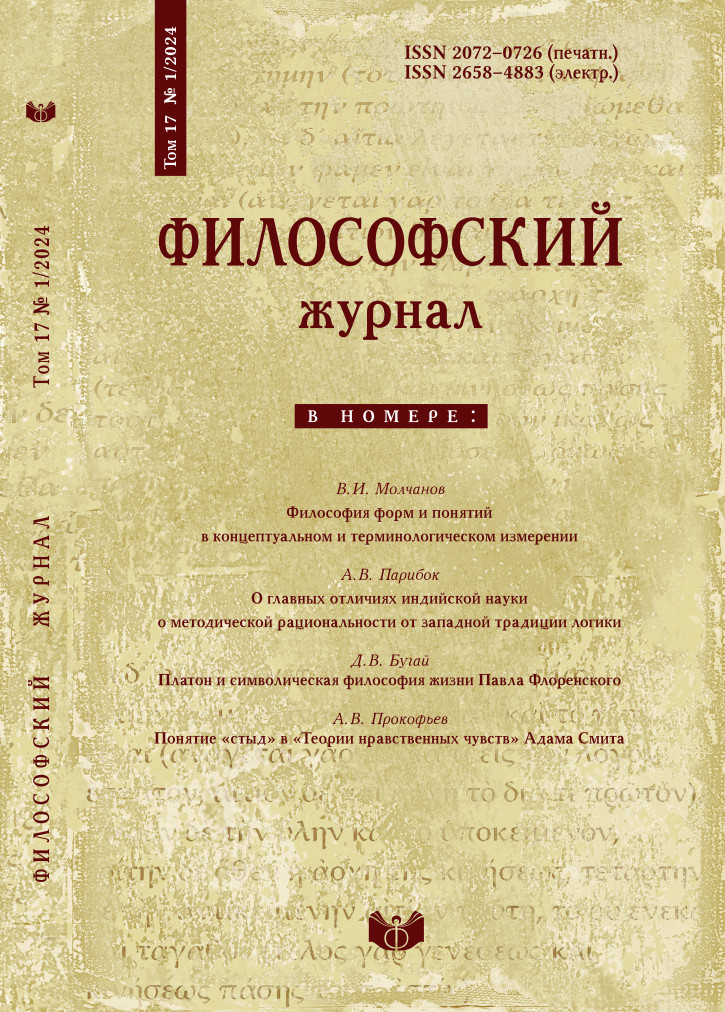About the main differences of the Indian science of methodical rationality from the Western logical tradition
DOI:
https://doi.org/10.21146/2072-0726-2024-17-1-73-83Keywords:
typology of intelligence, civilization specific rationality, nyāya, pramāṇavāda, logic, inference, syllogism, Indian philosophy, rationality, explanation, proofAbstract
It is neither historically nor essentionally correct to designate Indian traditions of methodical rationality (nyaya etc.) as “Indian logic”. The logic as invented by Aristotle is a complex, structural discipline with its own object and a number of rules. Nothing complex could have been invented twice in the history of thought in the same way. The most important differences between the Indian version of methodological rationality and Western logic are named and illustrated. 1. The distinction between using the mind for oneself and in communication. 2. Theory and typology of rational cognitive acts (pramana). 3. The scheme of isomorphism between a set of individual acts of cognition and speech communication about them. 4. Formal accounting of the necessity and expediency of acts of cognition. 5. Lack of enthusiasm for formalisms and a reluctance to separate this science from study and standardization of good reasoning. 6. Understanding of proof not only as a specific coherence of statements, but also as a communication. 7. The absence of a (half-hidden) Western idealization that posits a single thinking substance.






